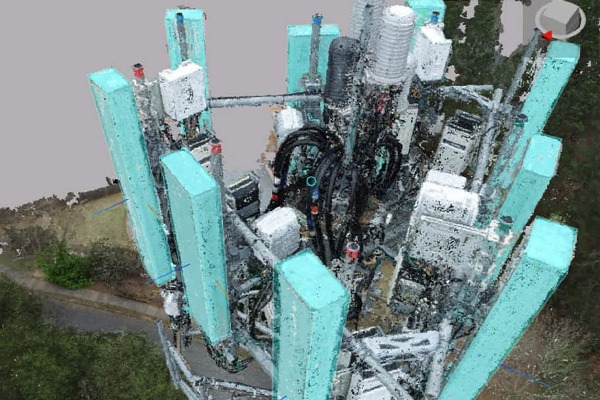Means and Contributions to Precise Reporting for Physical Asset Inspections
MEANS TO PRECISE REPORTING
Pointivo’s reporting platform significantly enhances accuracy for physical asset inspections through various means:
Standardization: Standardized templates and formats for inspection reports, ensuring consistency across inspections and inspectors. This standardization minimizes errors caused by manual data entry or interpretation.
Efficient Data Capture: Efficient data capture during inspections reduces the risk of data loss or inaccuracies associated with manual transcription. Inspectors can input data directly into the system using mobile devices or tablets, eliminating the need for paper-based forms.
Data Validation: Data validation helps identify and correct errors immediately, improving the overall accuracy of the inspection data.
Automation and Analysis: Automated analysis based on the collected inspection data reduces the likelihood of errors and ensures consistency in interpreting results.
Integration with Sensor Data: Integrating with sensor data provides additional context and accuracy to inspection reports. This integration allows inspectors to correlate visual observations with sensor readings, enhancing the accuracy of condition assessments.
Image Documentation & Digital Twins: Inspectors can capture and attach images directly to inspection reports. Visual documentation enhances reporting accuracy by providing additional context and evidence of asset conditions. Digital twins enhance physical asset inspections by providing efficient monitoring, predictive insights, simulation capabilities, remote collaboration, data integration, and lifecycle management functionalities. By leveraging digital twins, inspectors can optimize asset performance, minimize downtime, and ensure compliance with regulatory requirements, ultimately improving operational efficiency and reducing costs.
Historical Data Comparison: Comparing current inspection data with historical records enables inspectors to identify trends, anomalies, or deterioration over time. This historical perspective improves the accuracy of condition assessments and helps predict asset performance.
Remote Collaboration and Review: Remote collaboration for review allows multiple stakeholders to access inspection reports quickly, all reviewing one source of truth. This ensures that reports undergo thorough scrutiny and validation, further enhancing accuracy.
In a study conducted by the National Institute of Standards and Technology (NIST), researchers evaluated the accuracy and efficiency of digital reporting platforms in the context of building inspections. The study involved comparing traditional paper-based inspection processes with digital tablet inspection tools.
Key findings from the study include:
- Digital reporting platforms reduced data entry errors by 95% compared to paper-based forms.
- Efficient validation checks in the digital tools helped inspectors identify and correct errors immediately, leading to higher data accuracy.
- Integration with sensor data allowed inspectors to correlate visual observations with real-time environmental parameters, enhancing the accuracy of condition assessments.
- Standardized reporting templates provided by the digital platforms ensured consistency across different inspectors and inspection sites.
CONTRIBUTIONS TO BETTER ROI
Reporting accuracy in physical asset inspections directly contributes to an organization’s return on investment (ROI):
Data-Driven Decision Making: Accurate inspection reports provide reliable data about the condition of physical assets, enabling organizations to make informed decisions regarding maintenance, repairs, and asset management strategies. By relying on accurate data, these organizations can prioritize investments in assets that require attention the most, optimizing resource allocation and maximizing ROI.
Preventive Maintenance Optimization: Accurate inspection reports facilitate implementing preventive maintenance programs based on actual asset conditions rather than arbitrary schedules. By addressing issues proactively before they escalate into costly failures, organizations can reduce downtime, extend asset lifespans, and minimize maintenance costs, ultimately enhancing ROI.
Risk Mitigation: Accurate reporting helps organizations identify and mitigate risks associated with asset failures or deficiencies. Organizations can reduce the likelihood of accidents, regulatory violations, and related liabilities by addressing critical issues promptly and systematically. This proactive risk management approach protects the business’s reputation and financial interests, ultimately contributing to ROI.
Operational Efficiency: Accurate inspection data enables organizations to optimize processes and workflows. By identifying inefficiencies, bottlenecks, or areas for improvement, businesses can streamline operations, reduce downtime, and increase productivity. Enhanced operational efficiency directly translates to cost savings and improved ROI.
Compliance and Regulatory Adherence: Accurate reporting ensures that organizations meet regulatory requirements and industry standards related to asset maintenance and safety. By demonstrating compliance with regulations, organizations will avoid fines, penalties, and legal risks, safeguarding their financial interests and preserving ROI.
Asset Performance Optimization: Accurate inspection data provides insights into asset performance trends, allowing organizations to identify optimization and performance enhancement opportunities. By leveraging data analytics and predictive maintenance strategies, businesses can maximize asset uptime, minimize energy consumption, and optimize production output, improving ROI.
Customer Satisfaction and Retention: Reliable asset performance driven by accurate inspections contributes to customer satisfaction and retention. By consistently delivering superior products or services, organizations can attract and retain customers, strengthen brand loyalty, and drive revenue growth. Customer satisfaction directly impacts ROI by influencing repeat business, referrals, and positive word-of-mouth recommendations.
To learn more about Pointivo’s AI-driven platform and reporting precision capabilities, contact us at team@pointivo.com.
Don’t forget to share this post!
[tags]






